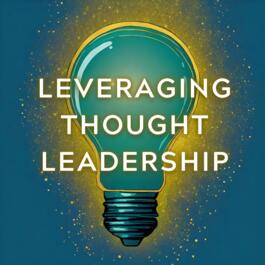
Navigating Virtual Teams and Complexity Theory | Dr. Robert Gordon | 602
How do you balance being a practitioner and an academic? In this episode, Bill Sherman talks with Dr. Robert Gordon, interim department chair for analytics, economics, and finance at American Public University about his unique journey from the world of cruise ships and supply chain to academia, research, and thought leadership. Robert shares his experience moving from practitioner to academic, and now returning to bridge the gap between the two. His expertise in supply chain management, particularly in the maritime and cruise industries, provided the foundation for a shift into research and publishing that impacted both academia and industry. Robert’s research on virtual teams and complexity theory was initially seen as niche, but when the pandemic hit, his work became highly relevant. The shift to remote work made his insights on virtual teams essential reading. He highlights the importance of staying connected to practitioners through conversations and continuous publishing to keep his research relevant. Robert’s story is a reminder that thought leadership is not a static process. It’s about continually evolving, reflecting, and bridging the gap between theory and practice. Three Key Takeaways: • Bridging the Gap Between Academia and Industry: Robert Gordon emphasizes the importance of staying connected to practitioners while conducting academic research, ensuring his work remains relevant and actionable in real-world settings. • The Power of Reflection in Thought Leadership: Robert highlights how reflecting on past work is crucial for growth, allowing him to evolve his ideas, improve his writing, and adapt to the changing needs of his audience. • Virtual Teams and Complexity Theory Gaining Relevance: What was once considered niche research became vital during the pandemic, as organizations around the world shifted to remote work, validating the importance of anticipating future trends in research. Robert knows the importance of academic research to practitioners. In this video Thought Leadership Leverage CEO Peter Winick explains how you can use academic research to build your thought leadership platform!
From "Leveraging Thought Leadership"


Comments
Add comment Feedback